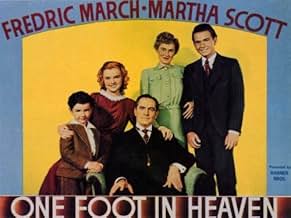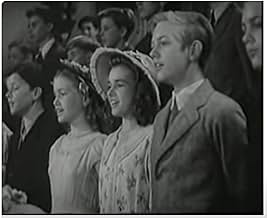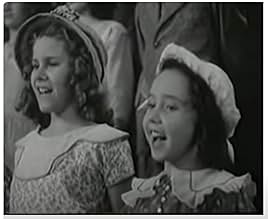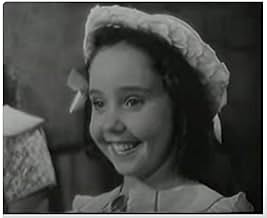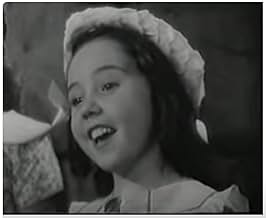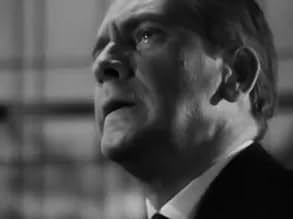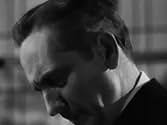ÉVALUATION IMDb
6,7/10
1,5 k
MA NOTE
Ajouter une intrigue dans votre langueEpisodic look at the life of a minister and his family as they move from one parish to another.Episodic look at the life of a minister and his family as they move from one parish to another.Episodic look at the life of a minister and his family as they move from one parish to another.
- Nommé pour 1 oscar
- 1 nomination au total
Dorothy Adams
- Woman Behind Hope at Baptism
- (uncredited)
Joan Anderson
- Child
- (uncredited)
Histoire
Le saviez-vous
- AnecdotesWilliam S. Hart was the guest of honor at the Hollywood premiere of this movie, since his movie The Silent Man (1917) figures prominently in the plot.
- GaffesAt the very end the assembled congregation sings the first verse of "The Church's One Foundation." After the first verse (of five) they sing double "Amens". The lyrics do not call for a single Amen, let alone two.
- Citations
William Spence: [to his son, Hartzell] A pastor's family are in a special category. We are uh... Well, It's as if we walked a sort of tightrope. Balancing with one foot on earth and one foot already in heaven.
- ConnexionsEdited into Happy Times and Jolly Moments (1943)
- Bandes originalesThe Children's Prayer
(uncredited)
from "Hansel and Gretel"
Music by Engelbert Humperdinck
Libretto by Adelheid Wette
Sung by the Robert Mitchell Choir
Commentaire en vedette
One Foot in Heaven is based on the memoirs of journalist Hartzell Spence's growing up as a Methodist preacher's kid in midwest USA from the Theodore Roosevelt era to the Roaring Twenties. It's what they mean when they talk about a family values film. The Camden Family of Seventh Heaven could well have been modeled on the Spence Family of generations past.
Young William Spence played by Fredric March has abandoned a career in medicine after being saved at a revival meeting and goes all the way and becomes a Methodist minister. Though taken aback by the career change, fiancé Martha Scott still marries him and the story follows them for the next 20 years or so, moving from one parish to another. Scott and March are such a good fit as the preacher and wife you would think that March was doing this with his own wife, Florence Eldridge.
March strikes just the right note as the minister, a just and pious man without being overbearing and sanctimonious. Would that preachers today were like him. He also demonstrates a capacity to learn. When his son goes to the silent cinema in defiance of Methodist preaching against the cinema, March takes him in hand to show him the error of his ways. They go to a William S. Hart western and March to his amazement finds he likes it and the western tale carries a good moral positive moral lesson. He changes his own view on the subject.
He also has to deal with a whole lot of modern day pharisees in dealing with the various politics of every parish he's assigned to. Chief among his tormentors are Beulah Bondi, the richest woman in town, who's actually offended by him treating her gardner Harry Davenport as an equal.
And there's Gene Lockhart who has something of the same role here as in Going My Way. But he's not as nice in this film. When he loses control of the church choir which Lockhart regarded as his private preserve, he and wife Laura Hope Crews mount a vicious smear campaign against March's son Frankie Thomas. His confrontation with Hope Crews and her gossip circle is a high point of the film.
Like Seventh Heaven there are some good humorous moments as well. I like March trolling for some marriage business down at the town clerk's office, looking for some wedding fees when times are a little lean. And the usual problems of dealing with parsonages which are not the most kept up buildings in the town.
The title of the film comes from March's explanation that he and his family have to set an example if in fact his profession puts them one foot in heaven already. It's good entertainment and Fredric March and Martha Scott do set the best example we'll ever see.
Young William Spence played by Fredric March has abandoned a career in medicine after being saved at a revival meeting and goes all the way and becomes a Methodist minister. Though taken aback by the career change, fiancé Martha Scott still marries him and the story follows them for the next 20 years or so, moving from one parish to another. Scott and March are such a good fit as the preacher and wife you would think that March was doing this with his own wife, Florence Eldridge.
March strikes just the right note as the minister, a just and pious man without being overbearing and sanctimonious. Would that preachers today were like him. He also demonstrates a capacity to learn. When his son goes to the silent cinema in defiance of Methodist preaching against the cinema, March takes him in hand to show him the error of his ways. They go to a William S. Hart western and March to his amazement finds he likes it and the western tale carries a good moral positive moral lesson. He changes his own view on the subject.
He also has to deal with a whole lot of modern day pharisees in dealing with the various politics of every parish he's assigned to. Chief among his tormentors are Beulah Bondi, the richest woman in town, who's actually offended by him treating her gardner Harry Davenport as an equal.
And there's Gene Lockhart who has something of the same role here as in Going My Way. But he's not as nice in this film. When he loses control of the church choir which Lockhart regarded as his private preserve, he and wife Laura Hope Crews mount a vicious smear campaign against March's son Frankie Thomas. His confrontation with Hope Crews and her gossip circle is a high point of the film.
Like Seventh Heaven there are some good humorous moments as well. I like March trolling for some marriage business down at the town clerk's office, looking for some wedding fees when times are a little lean. And the usual problems of dealing with parsonages which are not the most kept up buildings in the town.
The title of the film comes from March's explanation that he and his family have to set an example if in fact his profession puts them one foot in heaven already. It's good entertainment and Fredric March and Martha Scott do set the best example we'll ever see.
- bkoganbing
- 3 févr. 2006
- Lien permanent
Meilleurs choix
Connectez-vous pour évaluer et surveiller les recommandations personnalisées
Détails
- Date de sortie
- Pays d’origine
- Langue
- Aussi connu sous le nom de
- En las puertas del paraíso
- Lieux de tournage
- société de production
- Consultez plus de crédits d'entreprise sur IMDbPro
- Durée1 heure 48 minutes
- Couleur
- Rapport de forme
- 1.37 : 1
Contribuer à cette page
Suggérer une modification ou ajouter du contenu manquant

Lacune principale
By what name was One Foot in Heaven (1941) officially released in India in English?
Répondre

